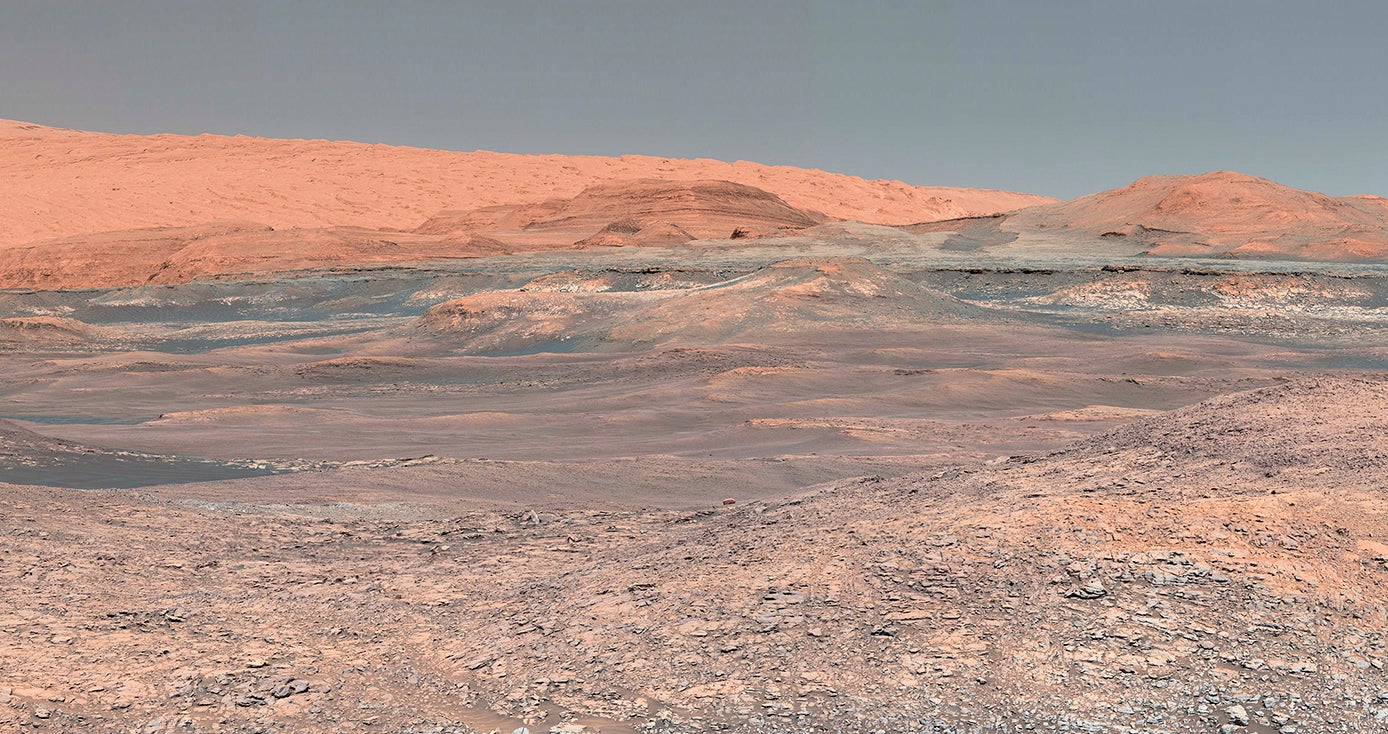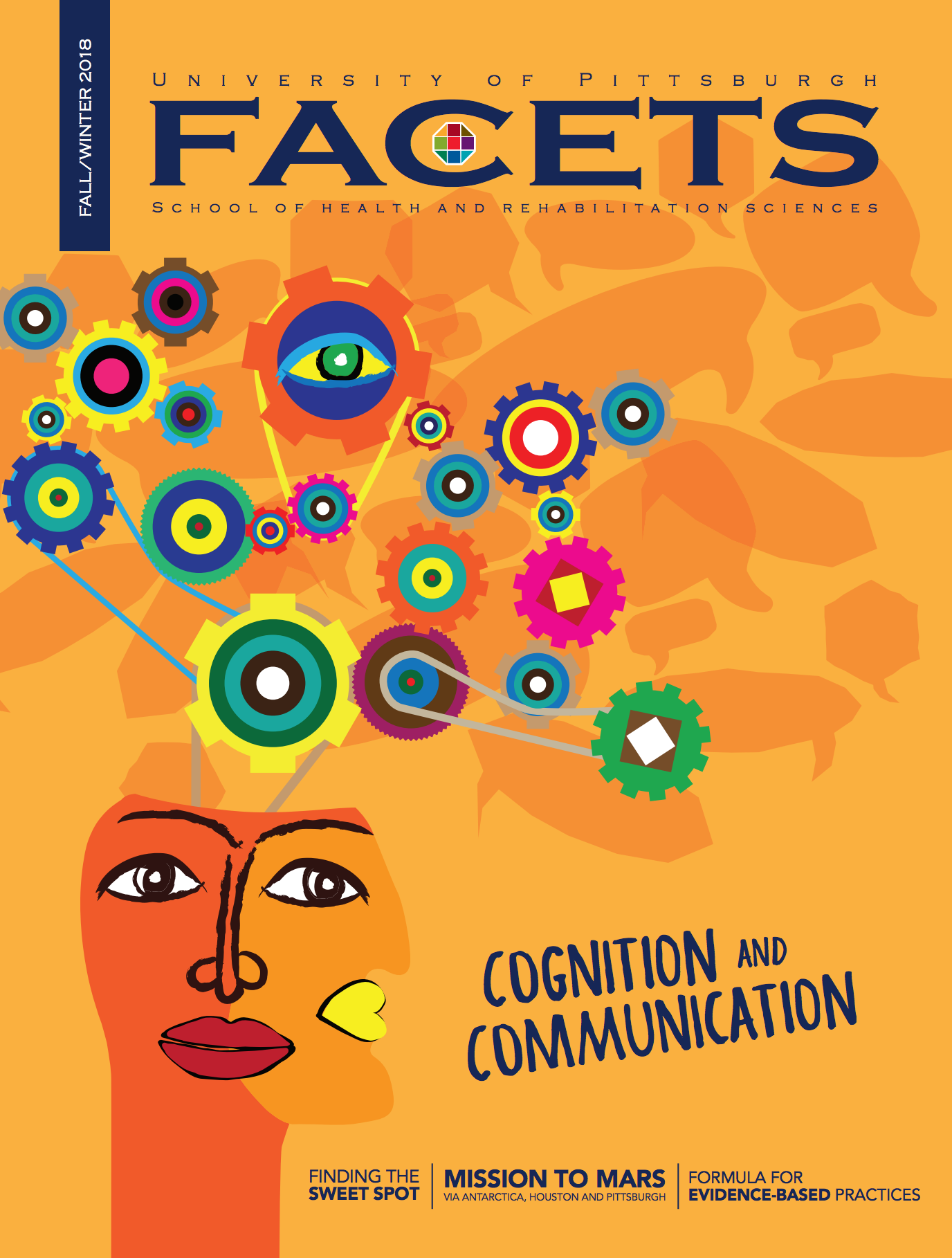
Subscribe to Pittwire Today
Get the most interesting and important stories from the University of Pittsburgh.Interpersonal Research Brings Humans One Step Closer to Mars Mission
This story originally appeared in the fall/winter 2018 issue of FACETS magazine.
When NASA began preparing for its journey to the red planet, it enlisted the help of researchers to determine what happens when an individual is forced to spend several months in isolated and confined environments. They examined the similarities between astronauts on Mars and individuals who work for extended periods of time in the extreme conditions of Antarctica.
Working with the National Science Foundation’s United States Antarctic Program, scientists from the University of Houston and the University of Pittsburgh collaborated to collect data that highlights psychological symptoms and conditions that degrade crew performance, increase conflict and jeopardize mission success.
Assistant Professor Chris Connaboy, in the Department of Sports Medicine and Nutrition, is part of the research team developing new metrics of behavioral risks as they relate to physical health in extreme environments.
As part of this work, Connaboy is synthesizing existing knowledge of the psychological and behavioral symptoms experienced in space and other extreme environments. The research team will then developing a comprehensive checklist of symptoms to be monitored among different cohorts, both on Antarctica and in simulated missions at the Johnson Space Center. The participants are monitored via monthly questionnaires and blood analysis, as well as online cognitive and sensorimotor assessments.
“Our study will extend previous research by exploring relationships among psychological health, sleep loss and dysregulation, biomarkers of stress and performance-based outcomes,” said Connaboy.
Operating in isolated and extreme environments requires crew members to spend prolonged periods in confined space with the same people. This increases the likelihood of interpersonal conflicts that may have a negative effect on crew cohesion and, ultimately, mission success.
“We know from previous studies that sleep deprivation is associated with emotional regulation,” said Connaboy. “And whether individuals are aware or not, emotion shapes human behavior, reactions, decisions and experience.
“Therefore, it is vital that we study the combination of these effects to fully understand the potential risks facing our astronauts, so that we can put in place a series of countermeasures designed to mitigate them,” he said.
Rehabilitation Science doctoral student Alice LaGoy (SHRS ’17G), who is studying the interaction between sleep and performance, said the unique design of the study allows for the collection of physiological and psychological measures to help explain underlying factors that may be contributing to these behavioral changes.
“We can study these behaviors throughout a night of sleep deprivation,” said LaGoy. “The behavioral changes we capture may relate to an individual’s propensity to take unnecessary risk, their ability to judge whether a certain action is risky, and other aspects of cognitive function.
“These behavioral changes, working in extreme environments or under conditions of sleep deprivation, may have significant implications on operational performance and on operator safety,” LaGoy said.
LaGoy said collaboration elevates the level of science being conducted at both institutions.
“Across different universities, there are experts in different fields and investigators with different specialties and experiences,” said LaGoy. “Being able to work with investigators who may bring different perspectives to the table enhances the quality of the science we can conduct.
“Working with investigators from the University of Houston who have expertise in different fields allows us to look at the interaction between different psychological, physiological and behavioral parameters rather than looking at these parameters in isolation,” she said. Although this study is in its final stages, the implications are far-reaching.
As NASA prepares for future missions, they will apply the knowledge gained from the research to improve astronaut safety. At the same time, medical personnel in polar environments will be better prepared to treat individuals who spend extended periods of time in extreme conditions.



